 Image 1 of 10
Image 1 of 10

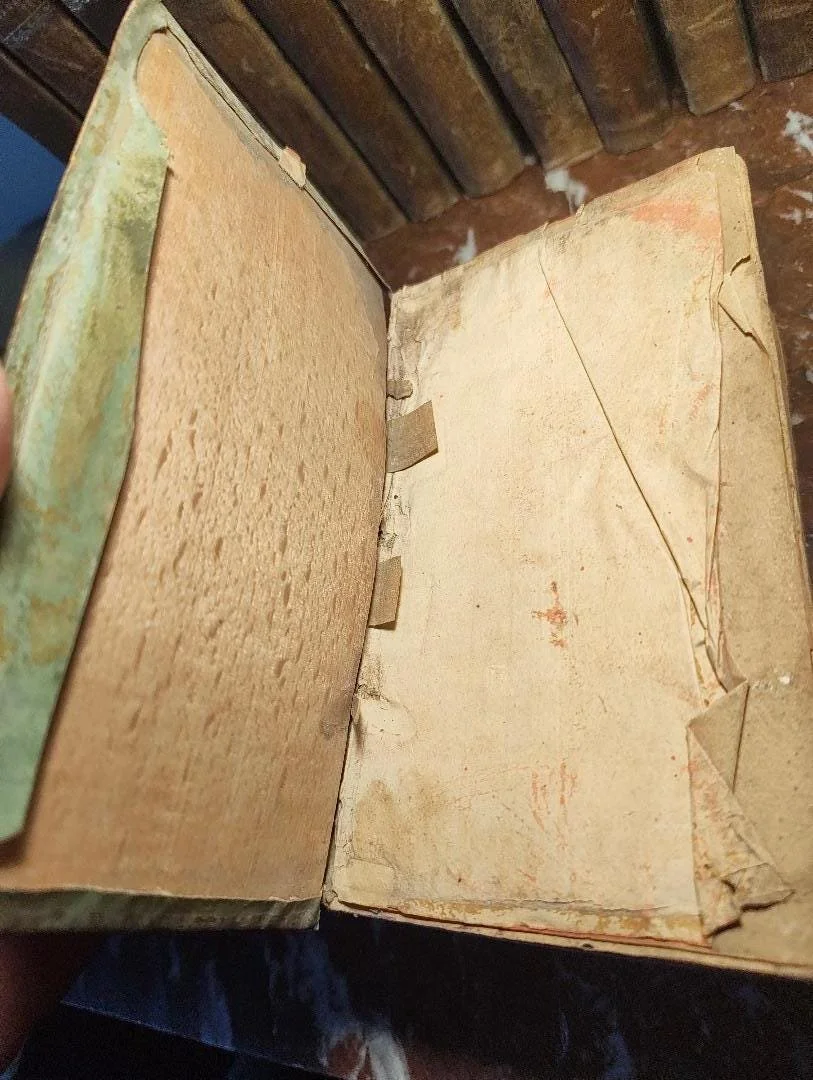 Image 2 of 10
Image 2 of 10

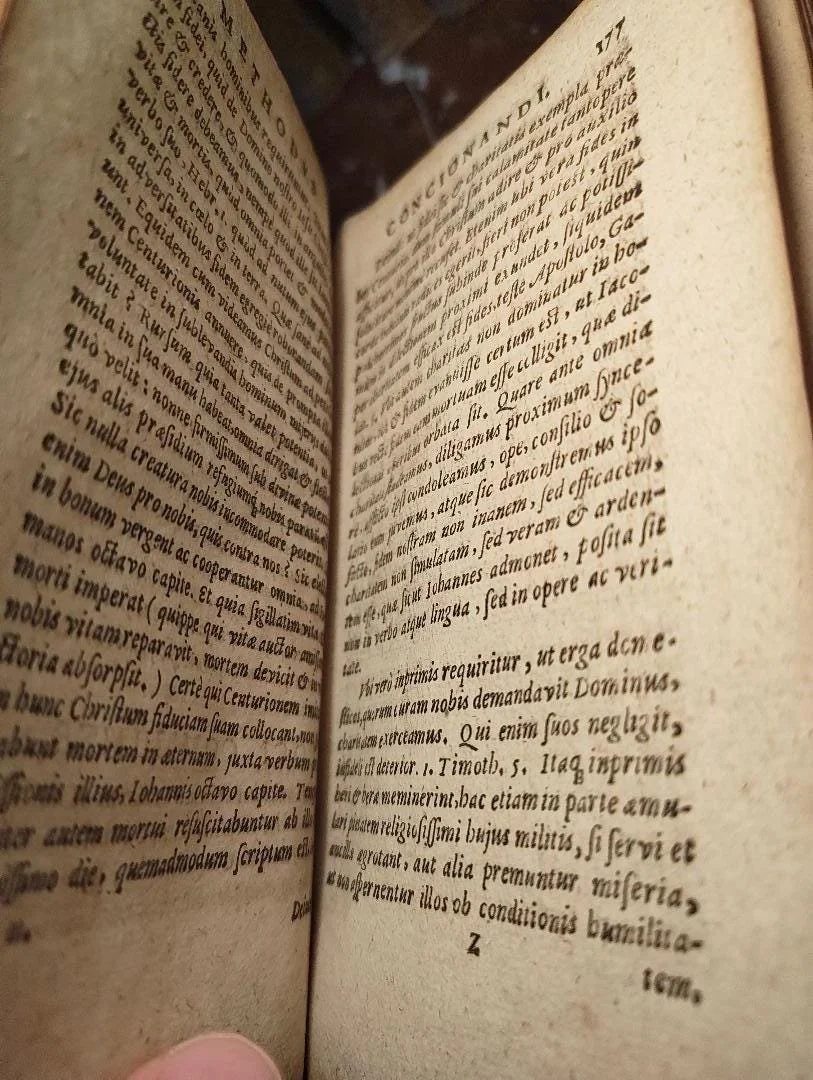 Image 3 of 10
Image 3 of 10

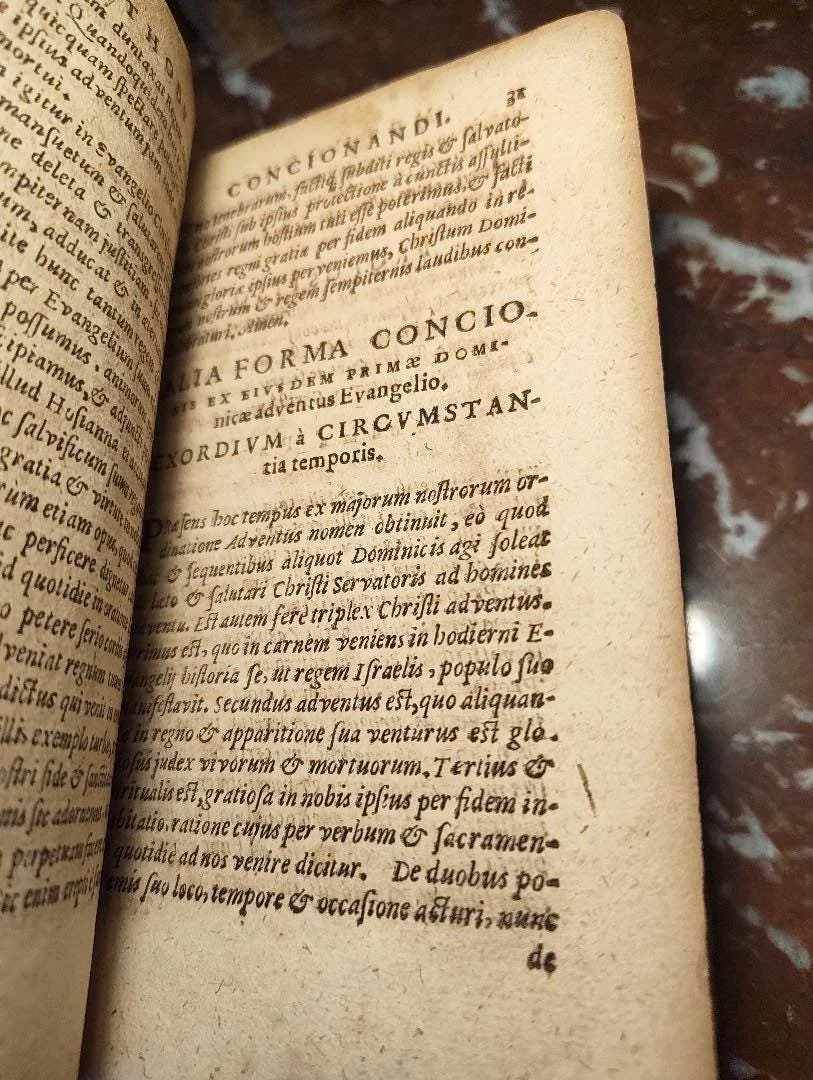 Image 4 of 10
Image 4 of 10

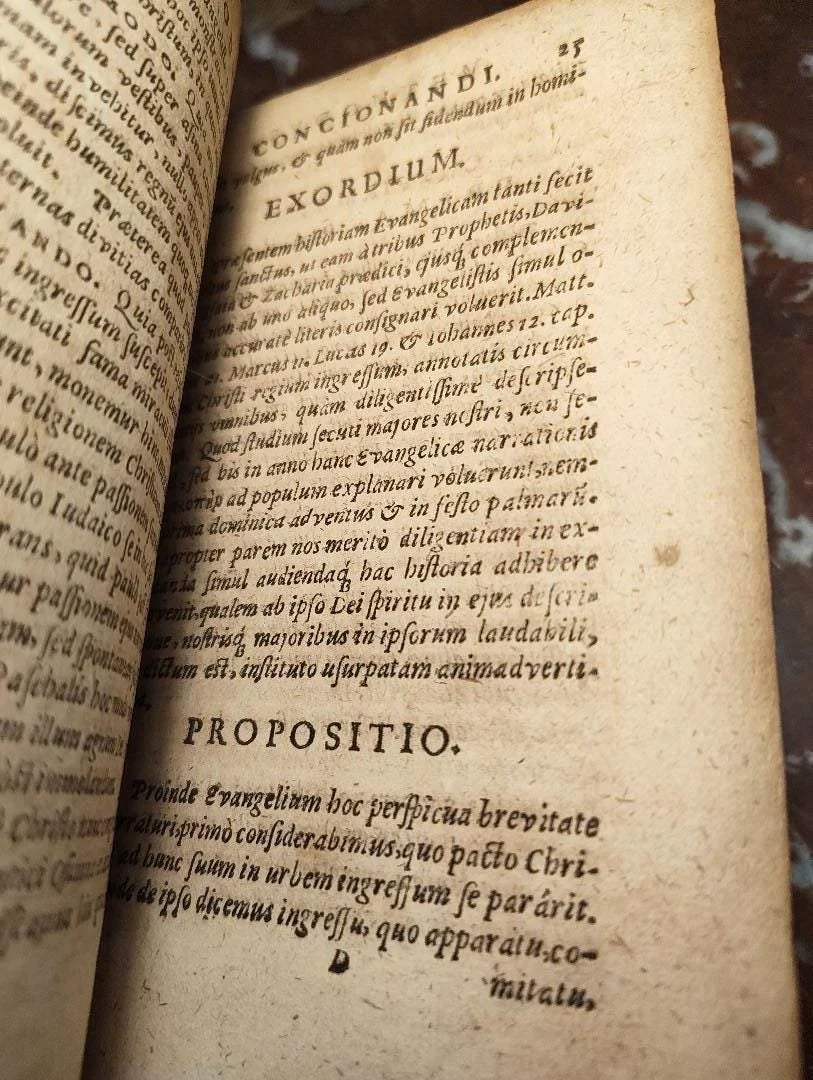 Image 5 of 10
Image 5 of 10

 Image 6 of 10
Image 6 of 10

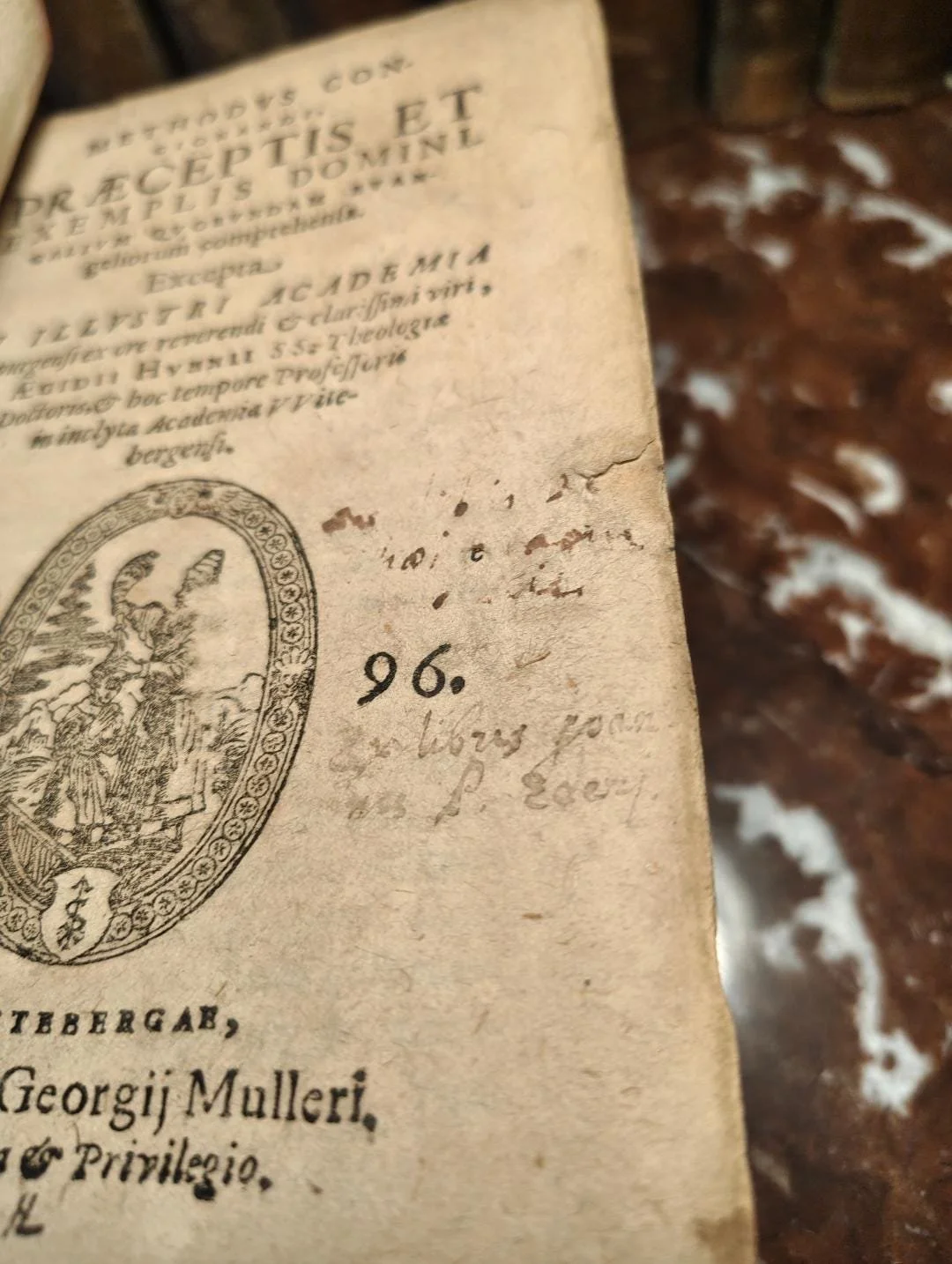 Image 7 of 10
Image 7 of 10

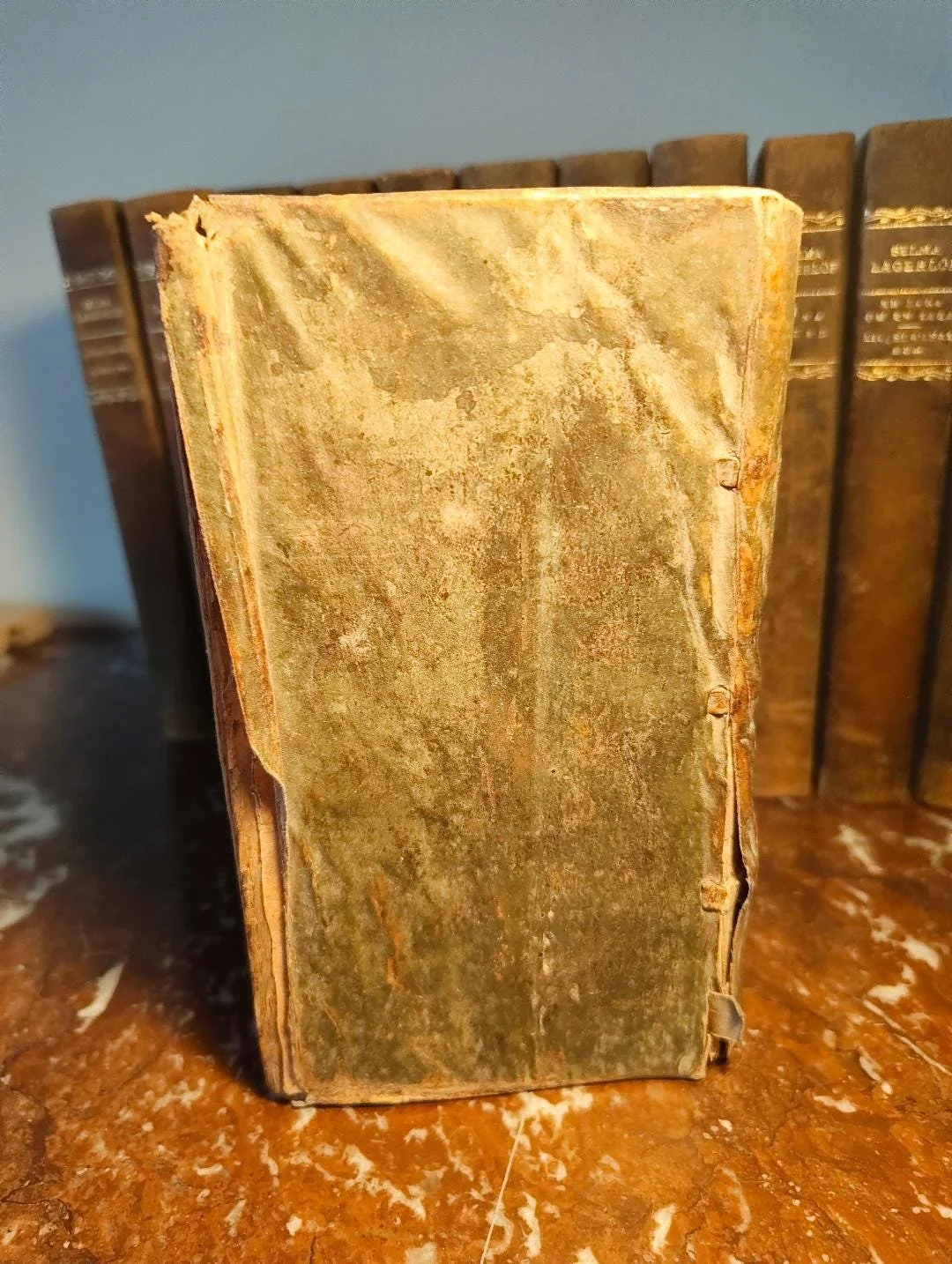 Image 8 of 10
Image 8 of 10

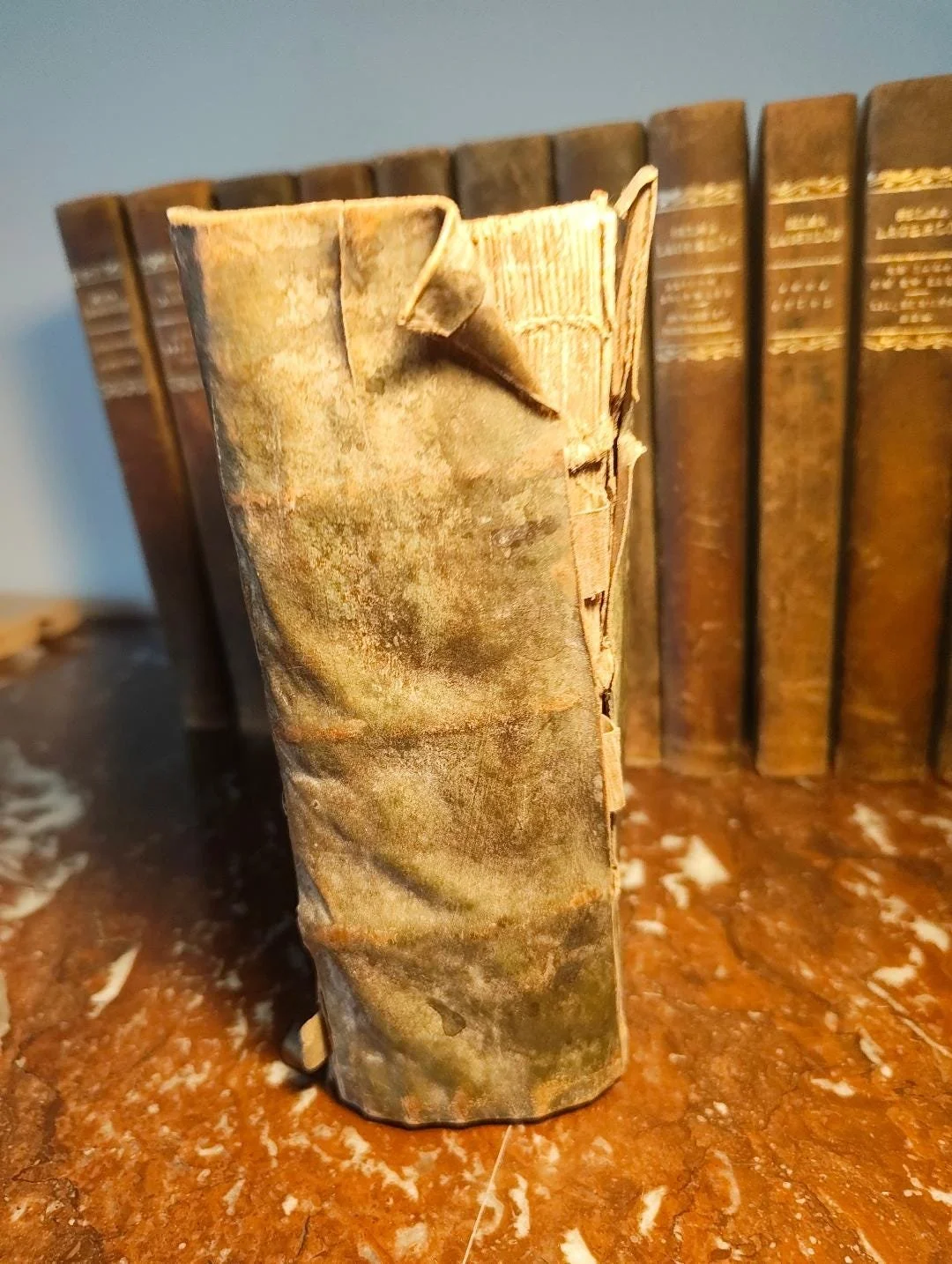 Image 9 of 10
Image 9 of 10

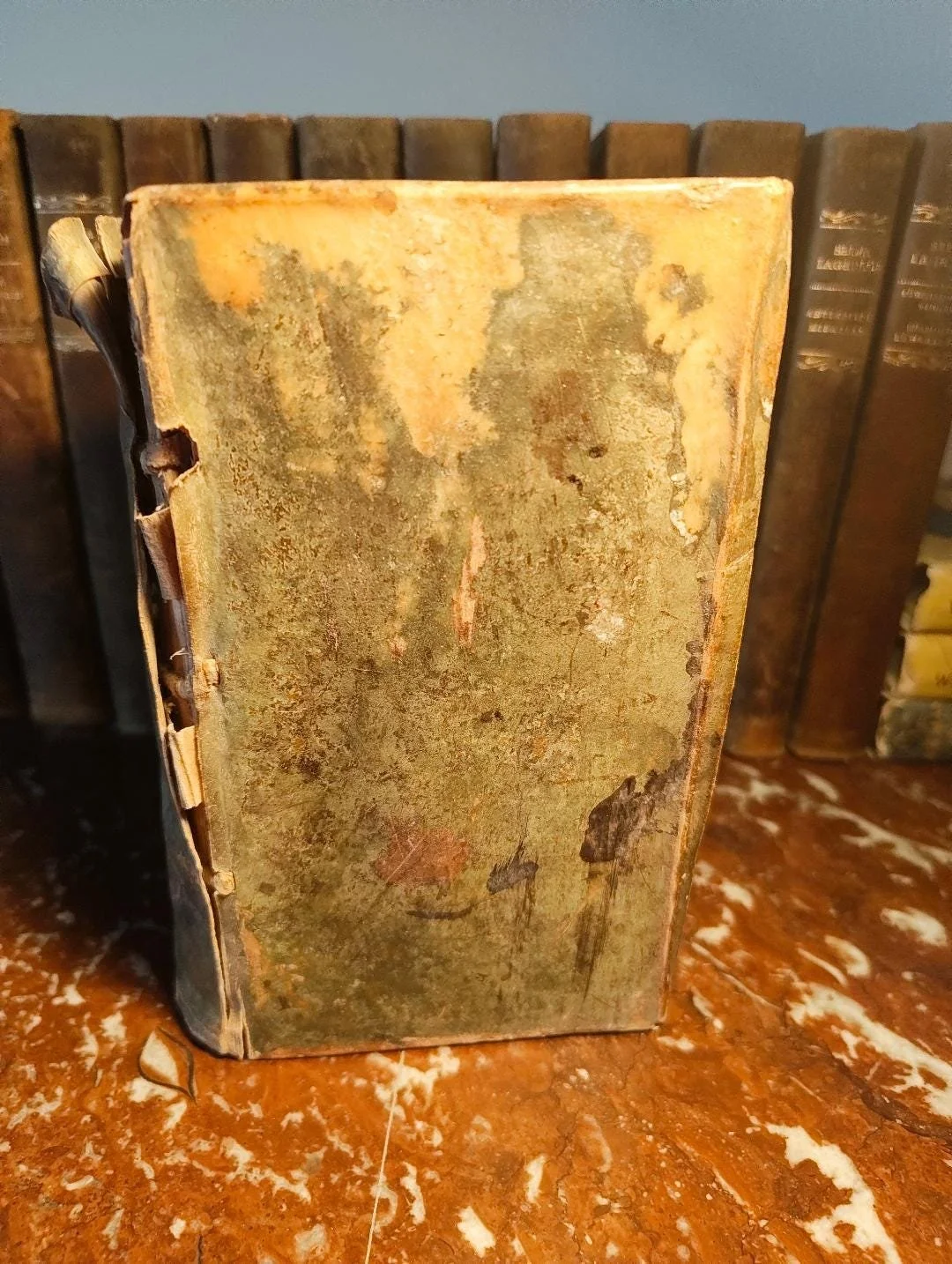 Image 10 of 10
Image 10 of 10











Theological Treatise. Aegidius Hunnius. 1596. Original Vellum Binding
A late sixteenth century work by one of Wittenberg’s leading Lutheran scholars
This 1596 volume by Aegidius Hunnius offers a compelling window into the intellectual world that shaped Lutheran orthodoxy in the generations following the Reformation. Printed at a time when the University of Wittenberg still served as the symbolic heart of Protestant scholarship, Hunnius writings reflect the rigorous theological system that emerged after Luther and Melanchthon, a system defined by confessional clarity, academic authority, and an ongoing struggle to articulate doctrine in a Europe unsettled by reform.
Hunnius, appointed professor of theology at Wittenberg in 1592, became one of the most influential voices in post Reformation debates. His works were studied by clergy, students, and regional church leaders who sought guidance in questions of doctrine, sacramental theology, and ecclesiastical authority. The present volume therefore stands not merely as a theological text but as a participant in the consolidation of Lutheran teaching during a formative and contested moment.
The book is preserved in its original vellum binding, a material that conveys the unmistakable presence of the sixteenth century. The vellum has darkened with age, the spine carries contemporary hand lettered titling, and the boards show the gentle irregularities characteristic of parchment bindings that have survived four centuries of handling. Despite age related wear, the structure remains sound and the text remains fully legible. The interior displays natural spotting and tonal variation consistent with early modern paper, but the printing is clear and complete.
As an artefact, the book exemplifies the durability of Reformation scholarship and the material culture of late sixteenth century academic life. It is the kind of volume that would have circulated among theologians, pastors, and students, forming part of the living tradition that extended the Wittenberg legacy across Central Europe.
For collectors of early Lutheran theology, Reformation era printing, or vellum bound books from the sixteenth century, this volume offers a rare and authentic example of the scholarship that shaped Protestant thought long after Luther’s death.
A late sixteenth century work by one of Wittenberg’s leading Lutheran scholars
This 1596 volume by Aegidius Hunnius offers a compelling window into the intellectual world that shaped Lutheran orthodoxy in the generations following the Reformation. Printed at a time when the University of Wittenberg still served as the symbolic heart of Protestant scholarship, Hunnius writings reflect the rigorous theological system that emerged after Luther and Melanchthon, a system defined by confessional clarity, academic authority, and an ongoing struggle to articulate doctrine in a Europe unsettled by reform.
Hunnius, appointed professor of theology at Wittenberg in 1592, became one of the most influential voices in post Reformation debates. His works were studied by clergy, students, and regional church leaders who sought guidance in questions of doctrine, sacramental theology, and ecclesiastical authority. The present volume therefore stands not merely as a theological text but as a participant in the consolidation of Lutheran teaching during a formative and contested moment.
The book is preserved in its original vellum binding, a material that conveys the unmistakable presence of the sixteenth century. The vellum has darkened with age, the spine carries contemporary hand lettered titling, and the boards show the gentle irregularities characteristic of parchment bindings that have survived four centuries of handling. Despite age related wear, the structure remains sound and the text remains fully legible. The interior displays natural spotting and tonal variation consistent with early modern paper, but the printing is clear and complete.
As an artefact, the book exemplifies the durability of Reformation scholarship and the material culture of late sixteenth century academic life. It is the kind of volume that would have circulated among theologians, pastors, and students, forming part of the living tradition that extended the Wittenberg legacy across Central Europe.
For collectors of early Lutheran theology, Reformation era printing, or vellum bound books from the sixteenth century, this volume offers a rare and authentic example of the scholarship that shaped Protestant thought long after Luther’s death.

